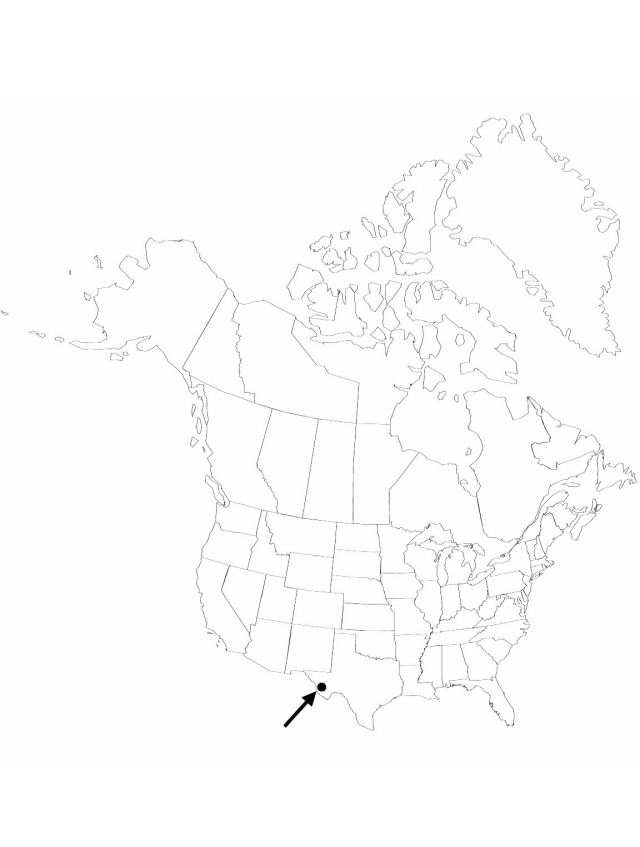Herbs, erect, rarely rooting at nodes. Roots tuberous, thick. Stems unbranched or sparsely branched, arachnoid-villous. Leaves 2-ranked, narrowing toward shoot apex; blade lanceolate-elliptic to ovate, 4–15 × 2–3.5 cm (distal leaf blades wider or narrower than sheaths when sheaths opened, flattened), base cordate-clasping, sparsely pilose to densely arachnoid-villous. Inflorescences terminal, 1–4 axillary, sessile in axils of distal reduced leaves, boat-shaped spathes absent. Flowers distinctly pedicillate; pedicels 0.6–1.4 cm, densely arachnoid-villous; sepals 6.5–8 mm, pilose to densely arachnoid-pubescent; petals distinct, rose-purple to bluish, not clawed, 10–15 mm; stamens free; filaments bearded. Capsules 3.5–4 mm. Seeds 2 mm. 2n = 12, 24, 24+ (Mexico).
Phenology: Flowering summer–early fall.
Habitat: Specific habitat unkown
Distribution

Tex., Mexico, to Central America (Guatemala).
Discussion
Although not recorded in any U.S. flora or checklist, Tradescantia crassifolia has been added to the flora based on an old collection from the Chenati Mountains in Texas. Another specimen labeled New Mexico is considered less credible.